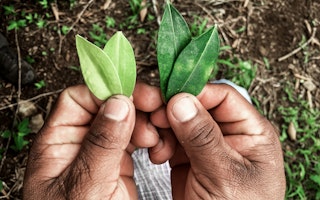All Too Familiar with the War on Drugs, Latin America Offers Advice to Africa
A reverend from Kenya, a doctor from Senegal, a psychiatrist from Tanzania, and a pharmacist from Malawi sip a cup of coca tea and munch on coca leaf cookies. This was the scene at the recent South–South Drug Policy Exchange in Bogota, a gathering of African and Latin American officials and civil society representatives to discuss the pressing issue of drug policy reform.
At the center of the war on drugs, Latin America is leading a growing international movement toward alternative drug policies based on promoting health, human rights, and proportional punishment. With a wealth of experience and innovation in the realm of drug policy reform, the region is well positioned to advise other Global South nations struggling with similar issues.
The South–South Drug Policy Exchange, part of a series of Africa–Latin America discussions organized by the Centro de Estudios de Derecho, Justicia y Sociedad (Dejusticia), aimed to blaze a new path forward for the movement. Participants surveyed the results of alternative drug policies and visited a small shop that legally sells coca-based products through an economic project created by a local indigenous community.
Experts from Mexico, Colombia, and Brazil detailed the success of new harm reduction and human rights approaches to drug policy. In return, reform-minded officials from Senegal, Kenya, Benin, Malawi, Tanzania, Ghana, and Botswana shared valuable perspectives on the public health and security challenges African nations face as a result of increased drug production, trafficking, and consumption in their region. The discussions allowed the group to identify common ground.
The two regions share many concerns. Both need a public health approach to drug policy that includes a focus on HIV and hepatitis C. There was agreement that drug policies must specifically address the needs of women and minorities, and that the chasm between the harm caused by drugs and the punishments doled out for drug crimes is far too large. In Africa especially, there was a call for more information on drug use and trafficking, with continued evaluation and monitoring.
For poorer countries, drug policy may appear less urgent than matters like disease prevention and food security. But initiatives like the South–South Exchange reveal how all these problems are interrelated. For example, injection drug use is a leading cause of Colombia’s rising AIDS rates, a disease that some African nations have only recently gotten under control.
In addition, African representatives expressed concern that their continent could be on the verge of a trafficking surge, destabilizing vulnerable areas and increasing the risk of armed conflict. Initiatives like the South–South Exchange provide the opportunity to learn about proactive policies and how to avoid adopting counterproductive ones that have already proven ineffective in Latin America.
Bringing Global South countries together is an opportunity for Latin American and African officials to coordinate and strengthen shared views on the need for reform at the United Nations. These voices will come together in April 2016 during the United Nations General Assembly Special Session on Drugs, a prime opportunity to counter the idea that the war on drugs—imposed by powerful countries and enforced by United Nations conventions—is the only option. There is another way, backed by hard-won experience in Latin America, and it represents the beginning of a consensus shift, one that perhaps begins over a cup of coca tea.

